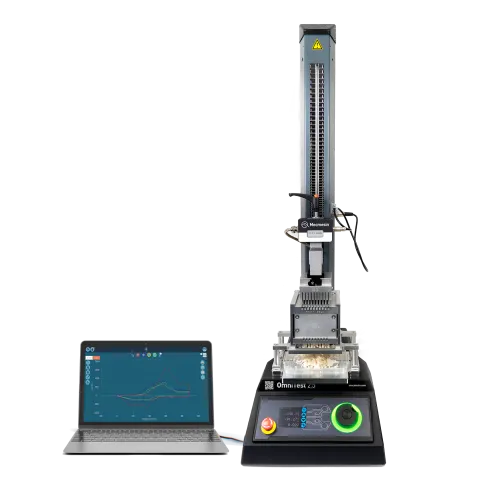Bulk analysis
A bulk analysis test method is used when it is not practical or representative to test an individual sample as a whole or component piece - the product sample is tested 'in bulk'.
Particulate products (e.g. granulated powders), or foodstuffs which contain small elements in an individual serving (e.g. rice or beans), lend themselves to being analysed by this method.
The procedure then applies compression, extrusion and shear - often in combination - resulting in higher forces than would have been encountered if testing a single individual particulate.
By testing in bulk, it is usually possible to clearly identify distinctions between different grades of the same product.
The most widely-used test fixture for bulk testing is the Kramer shear cell, which uses a series of blades to simultaneously compress through bulk materials to determine their compressive resistance.


